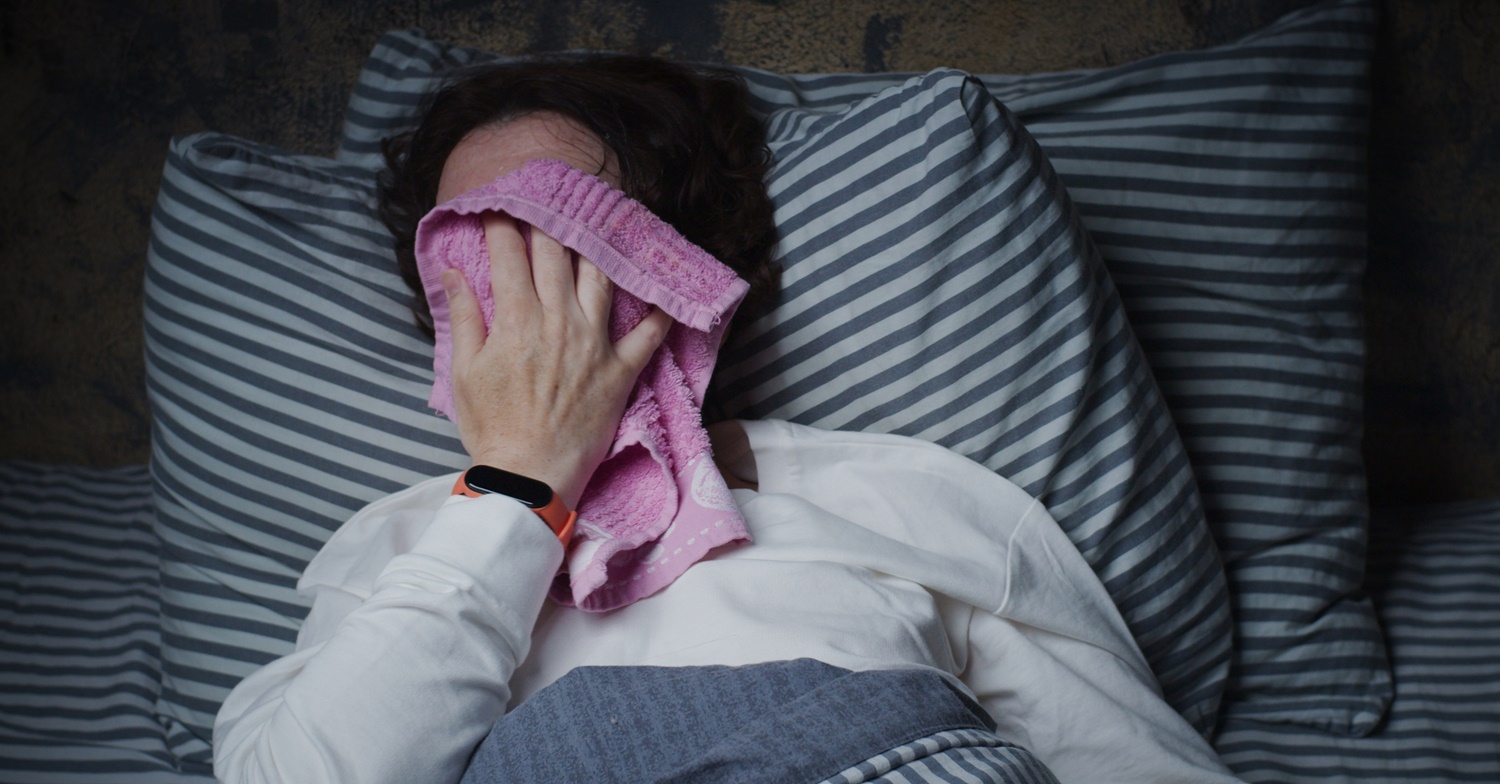Why do we sweat more at night than during the day?
In order to start the day fit, a restful sleep is essential. However, it is not uncommon to wake up at night bathed in sweat. There may be surprising reasons behind this.

During exercise, in the sun, when you are excited and sometimes while sleeping – sweating is important for the body, but in certain situations it can also be unpleasant because it is rarely controllable.
Sweats can be particularly annoying at night because they disrupt sleep.
Sweating at night is not uncommon in the summer months, but many people also sweat at night in the cold winter months.
Sweating at night is important for the body
Night sweats are non-physiological sweating and are also called hyperhidrosis. It can occur during sleep and in varying degrees. Basically: don’t panic, sweating at night is completely normal.
The body regulates its heat through sweating. Excess heat is transferred from the inside to the outside through sweating and the body cools down again as the liquid evaporates from the skin.
Up to one and a half liters of sweat per night is considered normal. However, if you sweat so much that you wake up every morning with hair sticking to the back of your neck and the sheets soaked, you can assume that something is wrong.
Sweating at night: That’s what’s behind it
First of all, you should check the room temperature. If you sleep with the heating turned up, it is simply too warm. The optimal room temperature is 18 degrees. You should also avoid thick wool pajamas and prefer to wear light cotton clothing. In addition to heat and nightmares, there are other reasons for heavy sweating at night – some of which should be discussed with a doctor.
1. Hormones affect the body
Hormones and metabolism also determine the body’s heat regulation. If there are certain disorders in these areas, they affect sweat production and also increase it when you are resting – often at night.
A natural hormonal change – for example during menopause – sometimes causes night sweats in women, and men too.
The thyroid gland plays a key role in hormone production. Your hormones are involved in numerous processes in the body. If it produces too much thyroid hormone for various reasons, it leads to a variety of problems, such as night sweats.
2. Psychological stress makes us sweat
While you often have the feeling that you have worries and fears under control during the day, at night it is primarily the subconscious that controls the body and a possible anxiety disorder becomes noticeable through a number of symptoms, such as night sweats.
Panic attacks, existential fears, financial worries or an unresolved separation can also be reasons for anxiety at night and thus sweating.
If you don’t want to or can’t speak to a therapist directly, you should first contact your family doctor and discuss the symptoms in order to get to the bottom of the cause.
3. Medications promote sweat production
If night sweats occur for no apparent reason, you should check your own medicine cabinet.
Night sweats are a very common side effect of many medications. If a new medication is used, it may well trigger night sweats.
In these cases, however, you should definitely speak to a doctor before stopping taking it. Uncontrolled discontinuation of medication can have massive consequences and should not be done without consultation.
4. Infections
Any bacterial or viral infections, such as tuberculosis, brucellosis tetanus, HIV, or simple flu that cause fever or a rise in temperature, can trigger night sweats.
Fever is considered a side effect of many infections and occurs when the body is defending itself against invading viruses – i.e. whenever the body’s defense system is under particularly intensive demand. Fever is therefore an independent illness, but always a symptom.
Those affected usually suffer from fever and chills at night, which is why night sweats are a common side effect.
5. Sleep apnea
Obstructive sleep apnea is a breathing disorder related to sleep that can trigger night sweats.
Those affected stop breathing for a short time and the carbon dioxide levels in the blood rise. Obstructive sleep apnea syndrome (OSAS) occurs when more than ten pauses in breathing occur per hour.
Depending on the frequency and duration, an undersupply of oxygen to the organism can occur.
If you experience regular night sweats: See a doctor
If you suffer from recurring night sweats and cannot explain the cause, you should definitely see a doctor and have the symptoms clarified so that you can take your body’s signals seriously.
Often the cause is completely harmless and easily treatable. In rare cases, however, it may also be that there is a serious illness, such as a metabolic disorder, an autoimmune disease, a heart disease or a mental illness.



